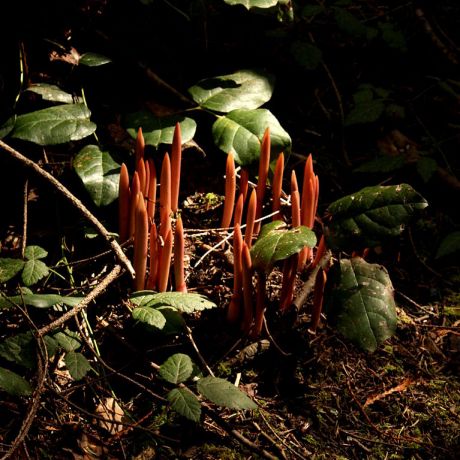
Coral-root_-_Corallorhiza
By Leslie Seaton from Seattle, WA, USA (Coral-root - Corallorhiza) [CC BY 2.0 (http://creativecommons.org/licenses/by/2.0)], via Wikimedia Commons
Plants require sulphur to grow, but they cannot absorb it as it mostly
exists in soil – as part of large organic molecules. For this, they need
networks of arbuscular mycorrhiza (fungi) and bacteria that break down
these organic molecules and make the sulphur available to plant roots.
The EU-funded
DESULFURIZATION (Microbial organo-sulfur desulfurization in the mycorrhizosphere) initiative aimed to identify which bacteria and fungi are involved in sulphur mobilisation in soil.
Researchers harvested fungi and bacteria from soil and cultivated them, along with model plants, under a steady supply of organic sulphur-containing molecules. They described sulphur flows through different organisms and trialled combinations of bacteria and fungi to better understand those interactions within this type of ecosystem.
DESULFURIZATION identified certain groups of bacteria that associated strongly with different types of arbuscular mycorrhizal fungi. Inoculating soil with these mycorrhiza encouraged plant root growth and a wider diversity of sulphur-metabolising bacteria.
Researchers also found that arbuscular mycorrhiza improved early plant growth, and that sulphur mobilisation played an important part in this phenomenon.
This research will lead to decreased use of synthetic fertiliser and provide farmers with a sustainable way to improve sulphur availability for their crops.

